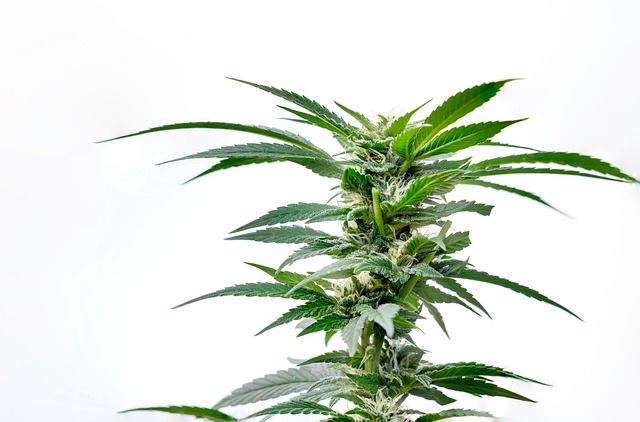Hemp terpenes, aromatic compounds in cannabis, are powerful natural antibacterials with diverse mechanisms. They enhance CBD's benefits and target specific pathogens, offering customizable solutions. Key terpenes like myrcene, linalool, and limonene show strong activity against antibiotic-resistant bacteria. The growing demand for Hemp Terpenes for Sale highlights their potential as safe alternatives in healthcare, cosmetics, food, and pharmaceuticals, revolutionizing product formulations and combating antibacterial resistance.
“Unveiling the Power of Hemp Terpenes: A Natural Antibacterial Solution
Hemp terpenes, the aromatic compounds responsible for a plant’s distinct scent, have emerged as potent antibacterial agents. This article delves into the science behind these unique molecules and their remarkable antimicrobial effects. We explore how hemp terpenes, available for sale in various industries, offer a natural alternative to combat bacterial infections. From understanding basic concepts to examining different types and their applications, this guide provides insights into the future prospects of hemp terpenes as game-changers in the antibacterial realm.”
Understanding Antibacterial Properties: The Basic Concepts

Antibacterial properties refer to the ability of a substance, such as certain terpenes found in hemp, to inhibit or kill bacteria. This natural defense mechanism is crucial in maintaining human health and preventing infections. Understanding how antibacterial properties work involves grasping key concepts like bacterial resistance and the role of specific chemical compounds.
Hemp terpenes for sale have gained attention due to their potential antibacterial effects. These aromatic compounds, responsible for the unique scents of cannabis varieties, exhibit antimicrobial activities that can combat a range of bacteria. The mechanisms behind these interactions involve disrupting bacterial cell membranes or inhibiting essential enzymes, ultimately hindering bacterial growth and survival.
Hemp Terpenes: An Introduction to Their Unique Characteristics

Hemp terpenes are a fascinating and often overlooked aspect of cannabis biology, offering unique properties that have piqued the interest of researchers and enthusiasts alike. These aromatic compounds, responsible for the distinct scents and flavors in hemp plants, also hold immense potential beyond sensory appeal. Each terpene contributes to the plant’s overall profile, and their collective interaction with cannabinoids is what many refer to as the ‘entourage effect’. This synergistic action enhances or modifies the therapeutic benefits of CBD, making hemp terpenes a game-changer in the world of natural medicine.
Amongst the diverse range of hemp terpenes, certain ones have garnered significant attention for their potential antibacterial properties. When considering Hemp Terpenes for Sale, it’s crucial to understand that these are not one-size-fits-all. Different terpenes exhibit varying degrees of antimicrobial activity against specific bacteria. For instance, myrcene has shown promise in studies targeting Staphylococcus aureus and E. coli, while linalool has demonstrated effectiveness against certain fungal strains. With such a wide array of options, researchers can explore tailored combinations to fight various infections, making hemp terpenes a promising area of study for natural antibacterial solutions.
The Science Behind Hemp Terpenes and Their Antimicrobial Effects

Hemp terpenes, organic compounds responsible for the plant’s distinct aroma and flavor, have gained significant attention for their potential antibacterial properties. These terpene molecules exhibit a unique ability to interact with microbial cell membranes, disrupting their integrity and ultimately leading to the destruction of bacteria. The science behind this effect is multifaceted; certain hemp terpenes can insert themselves into the lipid bilayer of bacterial cells, causing changes in membrane permeability and resulting in cellular damage.
Among the various hemp terpenes for sale, myrcene, linalool, and limonene stand out for their strong antimicrobial activities. Myrcene, with its earthy scent, has shown promise in inhibiting the growth of various bacterial strains, including those resistant to conventional antibiotics. Linalool, known for its calming aroma, exhibits potent antibacterial properties against a range of pathogens. Limonene, with its citrusy note, has been studied for its ability to combat drug-resistant bacteria, offering a potential natural alternative for antimicrobial therapy. The growing interest in hemp terpenes and their applications underscores the need for further research into these compounds’ therapeutic potential, particularly in the context of Hemp Terpenes for Sale and their role in promoting human health.
Benefits of Using Hemp Terpenes for Sale in Various Industries

In recent years, hemp terpenes for sale have gained significant attention across various industries due to their remarkable antibacterial properties. These natural compounds, found in the cannabis plant, offer a promising alternative to synthetic alternatives in many sectors. From healthcare and cosmetics to food and pharmaceuticals, hemp terpenes are revolutionizing product formulations by enhancing antibacterial effects while promoting overall safety and efficacy.
Their versatility is particularly notable in the battle against antibiotic resistance. Unlike traditional antibiotics that target specific bacteria, hemp terpenes exhibit broad-spectrum activity, making them effective against a wide range of pathogens. This makes them valuable not only for maintaining personal hygiene but also in industrial applications where preventing bacterial contamination is crucial. The increasing demand for hemp terpenes for sale underscores their potential to drive innovation and sustainability across multiple industries, leveraging nature’s gift to create better, safer products.
Exploring Different Types of Hemp Terpenes and Their Applications

In the quest for innovative antibacterial solutions, hemp terpenes have emerged as a fascinating area of exploration. These aromatic compounds, naturally occurring in cannabis and hemp plants, offer a wide range of potential applications due to their unique chemical properties. Different types of hemp terpenes, such as myrcene, limonene, and linalool, each possess distinct characteristics that can contribute to various industries’ needs, including pharmaceuticals and cosmetics. For instance, myrcene is known for its strong anti-inflammatory and analgesic effects, making it a potential ingredient in topicals designed to alleviate pain and reduce skin inflammation.
When it comes to hemp terpenes for sale, the market is expanding to meet growing interest. Many suppliers now offer these compounds, allowing researchers and product developers to access them for various purposes. Exploring hemp terpenes opens doors to creating natural alternatives with antibacterial properties, potentially providing new options in the fight against drug-resistant bacteria. This innovative approach leverages the power of nature, offering a promising direction for future research and product development.
Safety, Regulation, and Future Prospects of Hemp Terpenes as Antibacterial Agents

The safety and regulatory landscape surrounding hemp terpenes as antibacterial agents is an evolving domain. With increasing demand for natural alternatives in the pharmaceutical and healthcare sectors, research into the potential of hemp terpenes has gained significant traction. Hemp terpenes, available for sale from various suppliers, offer a promising avenue for developing novel antibacterial treatments with minimal side effects compared to traditional antibiotics. However, navigating regulatory hurdles remains critical. Stringent testing and quality control measures are necessary to ensure product safety and efficacy before their widespread adoption in clinical settings.
Looking ahead, the future prospects of hemp terpenes as antibacterial agents appear bright. Ongoing research aims to unravel the complex mechanisms behind their antimicrobial activities, leading to more targeted and effective formulations. The development of innovative delivery systems and combination therapies involving hemp terpenes could further enhance their therapeutic potential. As consumers increasingly seek holistic solutions, hemp terpenes may emerge as a prominent player in the fight against antibacterial resistance, providing a sustainable and safe alternative for various infectious conditions.
